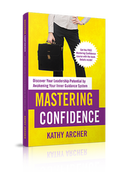The Inner Work of Leadership: Be Yourself and Lead with AuthenticityWomen leading nonprofit organizations know that leading with authenticity is at the core of effective leadership, or maybe they don't! In a world where we often feel the need to armour up, put on masks, and present facades, embracing our true selves can be terrifying and also a transformative experience. In my work, I teach four fundamentals of leadership. Let me cover them quickly here so you can create a plan to lead more effectively and feel good about yourself when you do! Nonprofit Leaders Discover The Power of Being True to Yourself1. Be YourselfI spent many years armouring up, putting on a face or feeling like there was a right way to lead. In Mastering Confidence: Discover Your Leadership Potential by Awakening Your Inner Guidance System. At times, I felt like I, figuratively and more often than not literally, suited up to go to work and then stripped away the layers when I got home. Sound familiar? But it's more than just the clothes we wear. It's the style, approach and manner we bring to our leadership. True leadership begins with authenticity. To be our best selves, we need to do the inner work of unmasking ourselves, shedding the armour, and embracing our genuine selves. That starts with identifying your values, beliefs, strengths and quirks and learning to be comfortable with all of them. That's the work of Being Yourself 2. Develop YourselfContinuous personal and professional development is the heartbeat of excellent leadership. Whether you're battling a lack of confidence or, quite frankly, don't know how to do 1-1 supervision, the journey of personal and professional development in leadership never truly ends. Strong and authentic leaders commit to ongoing personal and professional development. They have a plan for how they are growing and developing themselves on the inside and how they tactically do their day-to-day work. That's the work of Developing Yourself. 3. Take Care of YourselfLeadership isn't just about guiding others; it's about leading yourself first. Self-care plays a critical role in maintaining your composure, being able to focus, and being decisive. After all, you can't pour from an empty cup. Strong leaders develop practical strategies for ensuring their minds and bodies are well-equipped to handle the demands of leadership. That's the work of Taking Care of Yourself. 4. Teach Others to Do the SameTrue leaders empower those around them to embrace authenticity, continuous growth, and self-care. It starts with you, though. You can only teach it effectively if you do it. But when you do help others to unmask, develop, and care for themselves, it creates an engaged culture of loyal team members. Yes, we need to manage them, but inspiring leaders do more than that! Effective leaders learn to motivate, coach and mentor their team members. That's the work of Teaching Others to Do the Same. Learning to lead with excellenceIf you want to discover how to excel in leadership, explore how you can strengthen those fundamental strategies in how you lead. You'll learn more in the podcast series Invest in Your Leadership Excellence.
LISTEN NOW! Remember to subscribe on whichever channel is your favourite so you don't miss all 4 episodes in the series. Leading with authenticityRemember, leadership is not just a position, title or hat you put on when you show up at work each day. Leadership is a journey of self-discovery and growth. It is a personal growth journey! Embrace your authenticity, invest in your development, prioritize self-care, and lead with excellence and in a way that feels good! Do the inner work! It's worth it! p.s. If you want help doing the inner work so you can grow both personally and professionally, join The Training Library today! If you've been meaning to
NOW is the time to plan HOW you will do that 👆🏻 growth.
0 Comments
Understanding Pre-Meeting AnxietyIf you are a nonprofit leader and have a tough meeting coming up, you will want to feel empowered going into it. Tune into Sandra's story to build your confidence going into challenging conversations! Sandra's Story: Facing the Fear of a Tough MeetingWhen Sandra came to our coaching call, she was preparing for a meeting with the Executive Director about her performance. Sandra was dreading the meeting. She knew her boss would make her feel stupid, small and even scared.
But that's not how Sandra anticipated the meeting was really going to go down! Sandra knew she would feel attacked by her bossSandra knows that "help" from her boss is typically in the form of them pointing out:
Sandra's anxious thoughts were almost out of controlEver since Sandra's boss had scheduled the meeting, Sandra had been rolling around the worst-case scenario in her mind. She imagined being fired on the spot, being raked over the coals and being belittled, berated and bullied. Hence, the knot in her stomach! Sandra had a history of not feeling supported by her bossIt's no wonder Sandra was dreading the meeting! Past meetings had not gone well. Most of what Sandra feared had happened in the past.
It was time for Sandra to change her perspectiveJust because that is how Sandra's ED has communicated in the past does not mean that Sandra has to believe it means she is incompetent or not cut out for leadership. Sandra can choose to pick between the well-intentioned but still hurtful comments and find out what's valuable in between those comments. Sandra took back control of her thoughtsWhether it is this conversation with her boss or another, Sandra gets to decide how she will proactively continue to grow and develop in her nonprofit leadership role. Shifting Your Mindset for ConfidenceSandra enlists the support of her nonprofit coachSandra brought this upcoming conversation to our coaching call. In past coaching sessions, we'd already talked about mindsets, perspectives and lenses, so she knew her mindset mattered most! To plan to feel more confident in the upcoming conversation, we took a look at the kinds of messages Sandra's boss might share:
The Power of Perspective: Changing Your MindsetLeadership MINDSET # 1If Sandra chose to see herself as flawed, she would take these kinds of comments to heart. Imposter Syndrome would take over, and the knot in her stomach would grow to a tightening in her chest. Sandra could see how her thoughts could snowball:
Leadership MINDSET #2 (THE BETTER OPTION)I invited Sandra to PAUSE, and take a breath. I asked what might happen if she chose to hear the messages differently. Sandra PONDERed and considered the comments above and then what else might be true:
Mindset # 2 helps Sandra feel more confidentSandra then used curiosity to PIVOT to new thoughts:
Instead of feeling beaten down by taking time to move through the Inner Guidance Cycle, Sandra felt back in control. She was ready to take the core of the feedback (too much overtime) and hear it for what it is—Feedback. Believing in Your Potential: The Foundation of ConfidenceHow does this help Sandra remove the knot in her stomach before the meeting?By knowing she has control of her thoughts, choosing how to hear messages and intentionally choosing not to take things personally in the meeting but focus on the content, Sandra lessened the emotional charge going into the meeting. When Sandra chooses her thoughts, she feels her confidence soar!I reminded Sandra that feeling confident in a meeting isn't about what someone else says or thinks. Sandra smiled and nodded. She's been reading Mastering Confidence. I know, she said, it's what I believe. How confident you FEEL starts with what you BELIEVE.What you believe about yourself is what matters most. I asked Sandra:
I reminded Sandra that if she believes those things, the tone with which her boss shares those messages in that meeting is less relevant than the content and what she chooses to hear, believe and take action on. Creating an If/Then Plan for ComposurePreparing for Triggers: Sandra's If/Then StrategyWhile feeling more confident, Sandra was still worried about being triggered and losing composure in the meeting. Sandra wanted to prepare to stay composed in her talk with her ED. She'd recently reviewed the webinar: How to Prepare for a Tough Talk so you can handle it with integrity in The Training Library. She'd learned the power of being prepared for getting triggered with If/Then plans. She asked if I could help her prepare an If/Then plan in case she got triggered. Sandra already knew what kind of comments might trigger her and cause her to lose her composure.
We prepared her If/Then plan and she practiced saying her response.
Now, the knots have turned to butterfliesSandra was still nervous but felt way more confident and in control of her responses! She messaged me later and said the meeting was still hard, but she left feeling in control of herself, her responses and her future. What's Next? Taking Charge of Your Leadership JourneyWill you do what Sandra did? If you want to ditch the knot in your stomach before your next uncomfortable meeting, then you need to get ahold of your thoughts and emotions before you go into the meeting. You need to create a mindset that allows you to take back power, your personal power. That way, you will be able to respond in a way that makes you feel empowered, and you'll be able to handle your meeting more confidently, too! ❗️❗️VERY IMPORTANT NOTE❗️❗️
I am not condoning bullying or harassing behaviour. If that happens, you must decide how to address it, find mental health support, and/or change jobs. There is no one-size-fits-all plan for how you will deal with it. Just know that you have options if your workplace is not psychologically safe. Check your policy manual for direction on what to do within your organization. Online resources
You may also find these podcast episodes helpful. As a nonprofit leader, podcasts can be a fabulous asset to your growth and development. Do you listen to podcasts? I sure do. Podcasts are a great way to get updates, information, knowledge and often a good chuckle! I started my podcast, The Surviving to Thriving Podcast, in 2020. After 92 episodes, I took a summer break to rethink how to produce it best for you. I am working on a new 8-episode series to help you invest in your development. Stay tuned for a release date coming soon! Catch up on leadership podcasts from the Surviving to Thriving PodcastYou'll find the podcast here to catch up on the episodes. A few favourites of my clients and students are: Podcasts can be an integral part of your leadership developmentListening to podcasts can be valuable for personal and professional growth and leadership development. Below are five podcasts I regularly listen to and a favourite episode from each. You'll notice that not all the podcasts are related to leadership. Listening to podcasts not directly related to leadership can offer tons of benefits for you. Here's why you might listen to them: Why you need to listen to podcasts outside of the leadership genreYou might need to broaden your perspectiveMany challenges you face in leadership are complex and multifaceted. Exploring different topics and interests can expand your perspective, which is crucial for effective leadership. It helps you see the bigger picture and can provide fresh approaches to problem-solving. If you are working through a problem and hit the PONDER part of the Inner Guidance Cycle, listening to something not directly to leadership may open you up to seeing new perspectives. It could be time for a bit of stress relief and relaxation:Leaders often deal with a high level of responsibility. Podcasts unrelated to work can serve as a mental break, preventing burnout. Listening to podcasts about hobbies, mindfulness, or more fiction styles can help you unwind and reduce stress. Some say true crime podcasts do that for them. I am definitely not one of them! Investing time into listening to podcasts can be a powerful means of self-improvement, offering a wealth of insights, motivation, and support for your leadership journey. Some of my favourite podcasts episodesThe Science of HappinessRe: Thinking with Adam GrantDaring Greatly with Brene BrownHow We Live Now with Kathrine MayDachner Kelter on awe, humility and purpose
Dachner is also the host of The Science of Happiness podcast I listed above. Let me know which podcast you listen to and what you'd recommend for me. I'm always interested in expanding my podcast listening experience! p.s. Part of inner work is expanding what you put into your inner sphere. Podcasts are a great way to "Do the inner work!" When you leave the meeting, what do people on your nonprofit team say about you? If you stood out in your employees' minds, and they were talking about you to their spouse at the end of the day, how would they describe your behaviour, impact on them or your personality? What people say about you is your reputation, which impacts how they define your character. It also affects how loyal people are to you, how well they work for you and your relationship with them. Reputation: The Outer PerceptionYour reputation is how others perceive you based on your actions, behaviours, and the way you interact with them. It's essentially the image you project to the outside world. Your reputation can be influenced by your conduct, what you do and say, and how you treat others.
Character: Your Inner Compass Character is who you truly are at your core. It's about your values, morals, and integrity. It's about what you believe in and how you behave when no one is watching. Character is your internal compass, guiding your decisions and actions.
Character and Reputation go hand-in-hand Your reputation is influenced by your character. People, however, have a limited view of you, which can impact their interpretation of you or how they would define your reputation. You may be honest in 90% of your life, but if your employee shared something with you in confidence and you told HR about it, and it got back to them, they may deem you untrustworthy based on that one situation. Aligning Character and Reputation Over time, your character shines through in your actions and interactions. The more contact you have with someone, the markers they will have for defining your reputation. The total of your ongoing conduct, actions and behaviours shapes someone's view of you. How to lead with strong character To become an authentic and trustworthy leader, it's vital to align your character with your actions. Here's how you can achieve this alignment:
When you live in alignment, your character is solid, and your reputation will reflect that. That alignment, walking your talk, and being who you say you are leads to more authentic and trustworthy leadership. Your character is how people describe you. It's the traits that they would attribute to you. It's not what you hope they think of you. Your intentions and conduct are essential for developing your character, but ultimately, your character and reputation are how others describe you.
Take a moment to fill in the blank:
Perhaps these are some of the sentence endings you came up with:
Your character is the words others use to describe how they see you and your impact on them. Your conduct is the behaviours and actions others see that they use to assess your character. This includes how you act, interact and engage with others. It is what you say and do as much as what you don't say or don't do.
Your answers to these questions give insights into how others might describe your character. Each incident, response or action doesn't stand alone. People use a total of all your conduct to assess your character and describe your reputation. Your conduct is not a one-time event. The Power of Perception What we often forget, though, is that people's view of us takes into account the good times and bad. You can't be available, sometimes and other times not, without a valid explanation and clear boundaries. In one way, people will see you as "all over the place" and, in the other, as someone with consistent boundaries. You can start to get a feel for your reputation and, thus, your character by considering some of the questions above. I've added more sentence starters below to get you thinking about others' reputations and how yours is defined. Try it with other people first, then switch it up to thinking about how people would finish these sentences if asked about you.
What did you learn? Did you have any ah ha's about your conduct and how it may or may not align with the character you wish to exemplify? Your Leadership Journey If you want to learn more about how to develop your character and lead with your strength of character, here are additional resources for you. Rebuilding Trust: How to fix your reputationhttps://www.kathyarcher.com/blog/rebuilding-trust-how-to-fix-your-reputation How and why you MUST lead with your strength of character https://www.kathyarcher.com/blog/how-and-why-you-must-lead-with-your-strength-of-character Learn to Develop Your Leader CharacterIf you want to learn more about developing your character and you are a member of The Training Library, check out the WEBINAR: Develop Your Strength of Character.
Strong, confident and capable leaders are those who are continually learning and growing. Maybe you know that, but if you are like most women, you may be:
Let me tell you a little secret:
Before we get into low-cost ways to learn, let's review why it's so essential that you engage in training and take the time to develop yourself. You need to make growth mandatory Growth and development, your personal and professional development, are your paths to success in leadership and how you'll find your way to actually enjoying impactful leadership and life at the same time. Yes, striking that balance of impactful leadership and living a full life outside of work is possible. You must recognize that to do that, you must make learning and growing mandatory. Two reasons why training is critical for effective leadership.1 - You'll be stuck in old ways if you don't learn If you can't remember the last time you read a book, took a course that wasn't required training for the job, or spent a few minutes reflecting on your personal growth lately, you may feel frustrated with your experience of leadership. You feel crappy because you are stuck with only a few options, tools, or skill sets. As a result, you may be approaching problems with the same mindset and skillset you learned 10, 20 or 30 years ago. Those old ways will not keep you at the forefront of leadership or help you enjoy life. If you ever feel like you're on a hamster wheel, experiencing the same crises and dramas day after day, that might be because you've become stuck or trapped in the same spot. It's like swamp water that doesn't move, and it's why you feel icky. When your growth & development stagnates, you feel stuck. New training will give you new insights, fresh perspectives, and new tools and thus get you moving, flowing and smelling better. 2 - Your skill set is limited, and you know it If you are like many women leaders, you sometimes struggle with imposter syndrome. Instead of feeling competent, capable and confident, you feel:
To get out of imposter syndrome, you need the training to feel competent and thus confident! If you aren't getting the training you need, you keep feeling incapable, insecure and incompetent. Ongoing personal & professional development is your path to confidence. How to learn on a limited budget Perhaps your training budget is shot or nonexistent in your organization. Or maybe you don't want to ask for training money. What about paying for it yourself? Let's be honest, we all know your nonprofit income only stretches so far! Yet, we know strong, confident and capable leaders are those who are continually learning and growing. So, how do you do it with limited funds? Check out the options below. THREE FREE PLACES TO LEARN
3 FREE PLACES TO LEARN FROM ME
THREE LOW-COST PLACES TO LEARN
Remember, effective leaders, ️️️√ Focus on learning and growth. √ They are continually developing themselves. √ Keep the knowledge flowing through them and onto the people they serve. Ongoing personal & professional development is your path to confidence and effective leadership. If you've been meaning to
NOW is the time to plan HOW you will do that 👆🏻 growth.
|
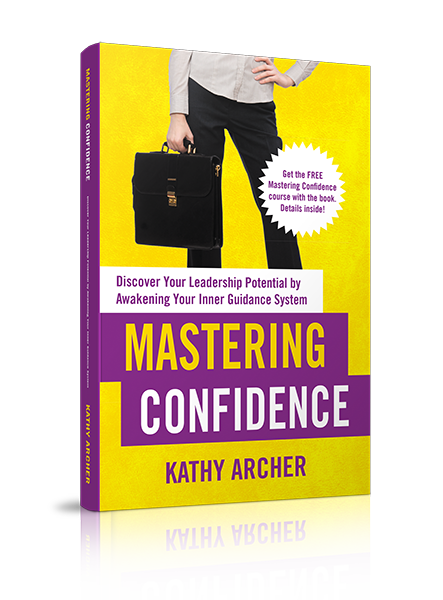
Available on Amazon
Archives
May 2024
|
|
Leadership TRAINING for Nonprofit Leaders
Become a confident and competent nonprofit Leader: Join The Training Library membership Executive and Leadership COACHING Leadership Coaching for Nonprofit Executives, Leaders and ManagerCoaching |
PODCAST for Nonprofit Leaders
The Surviving to Thriving podcast: Strategies, systems and support to lead your nonprofit with confidence FREE RESOURCES to Grow your Leadership Skills Free Leadership Training Resources, Worksheets and Templates |
Become a CONFIDENT LEADER
|

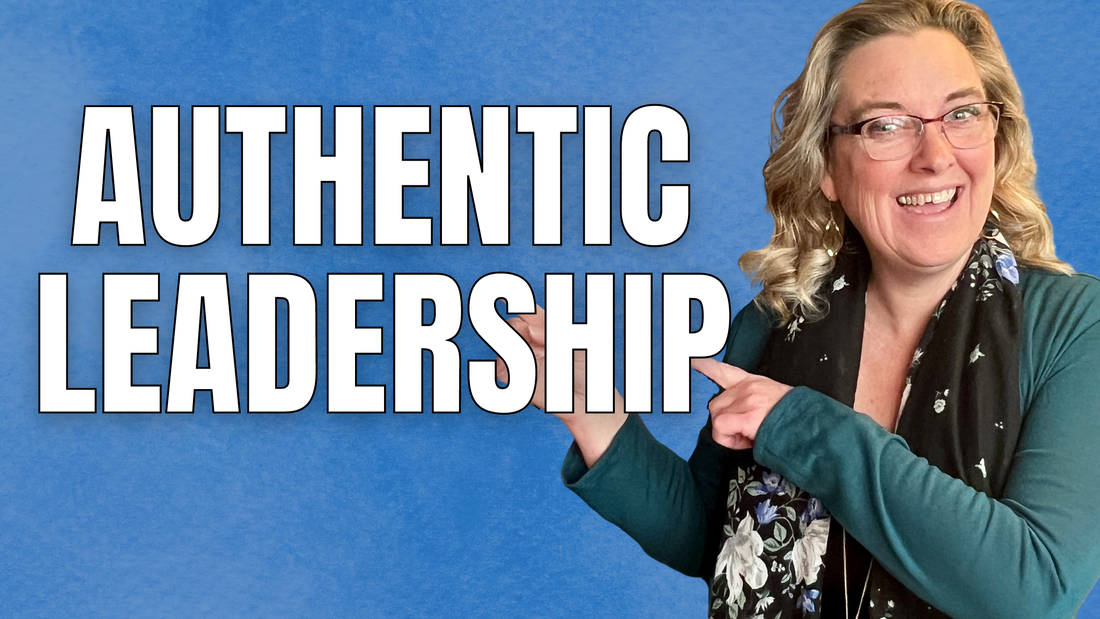


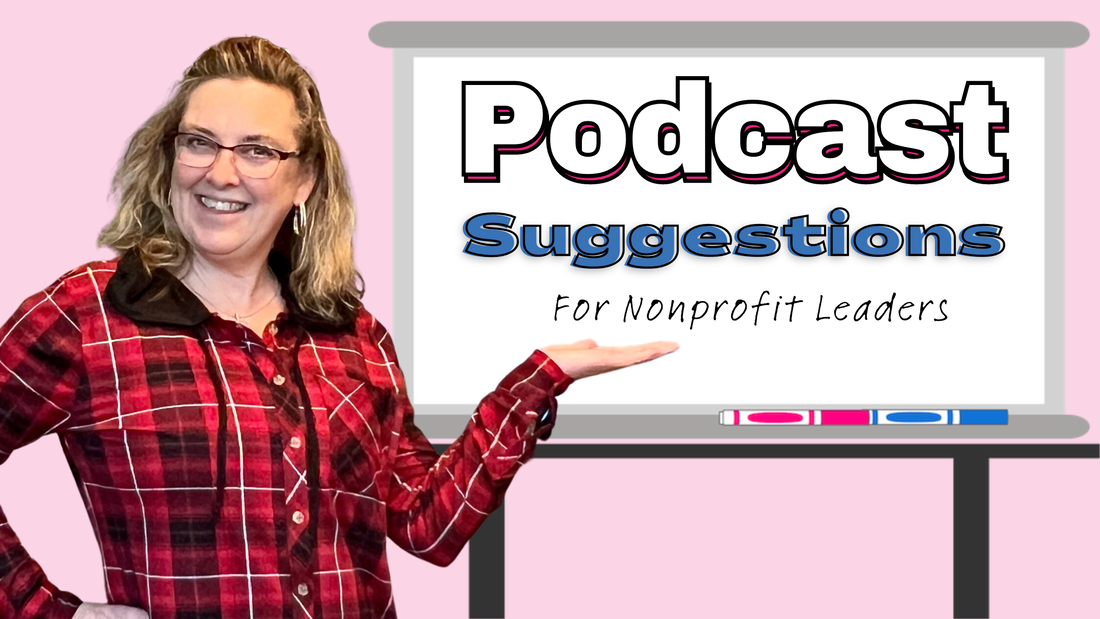
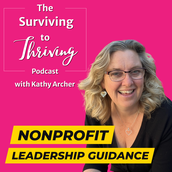
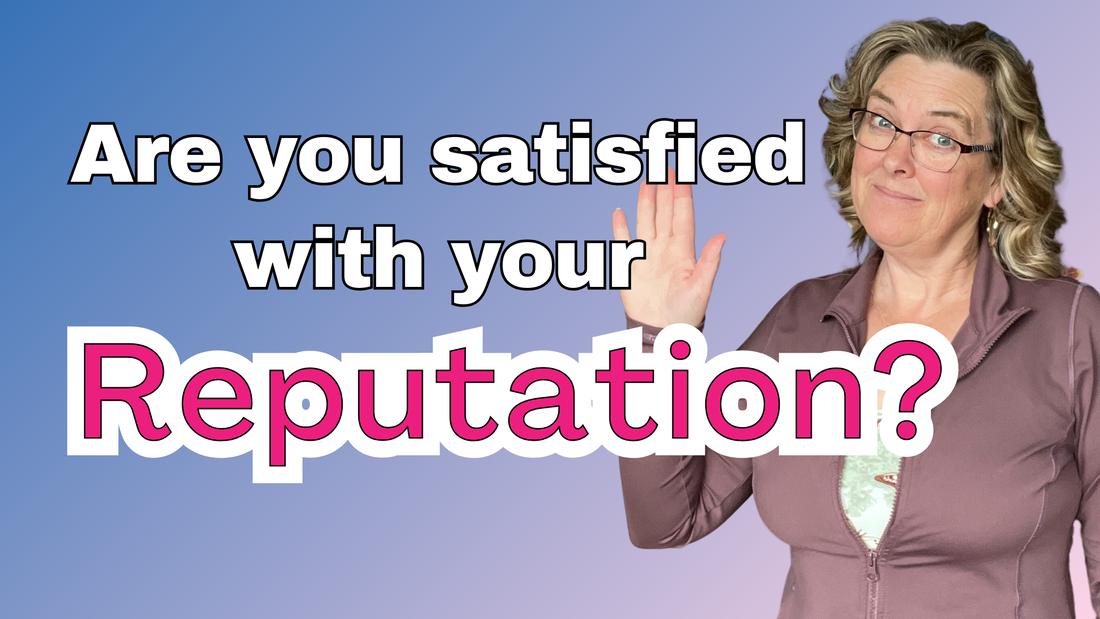
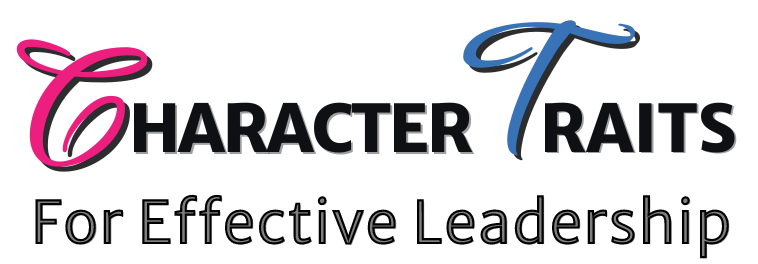
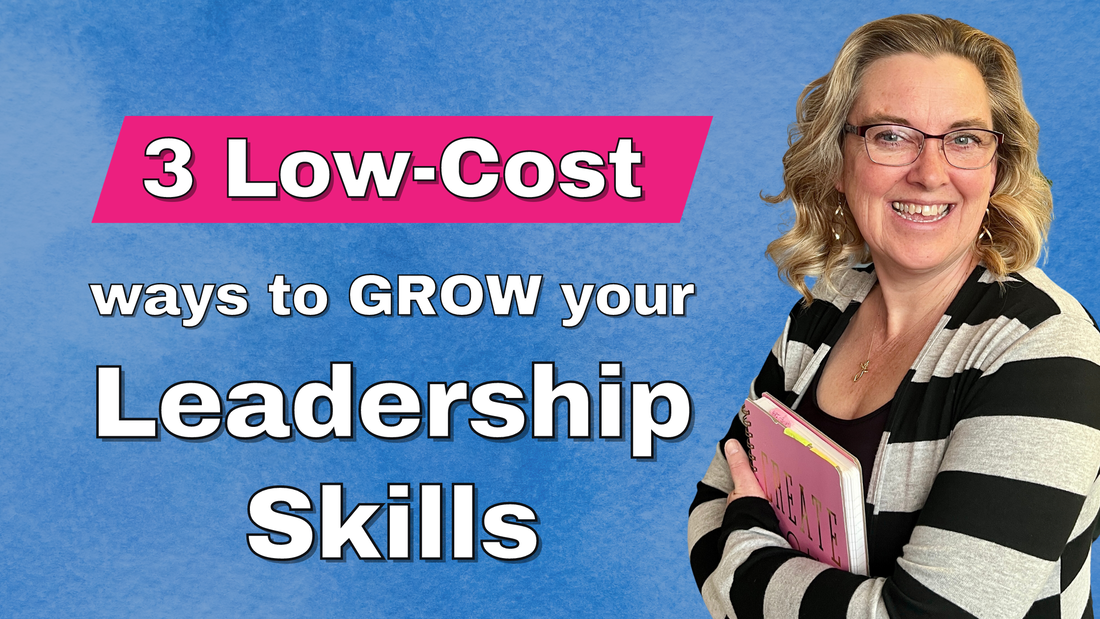
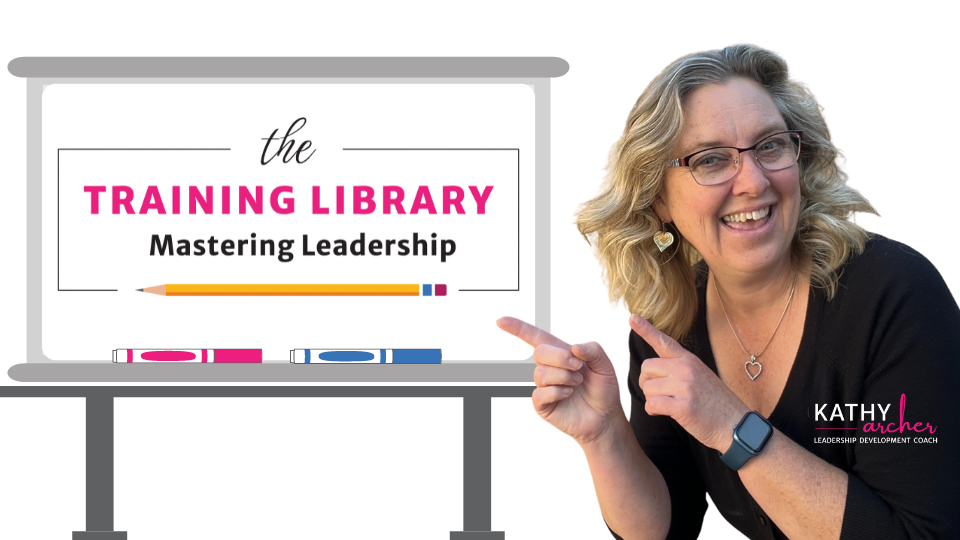

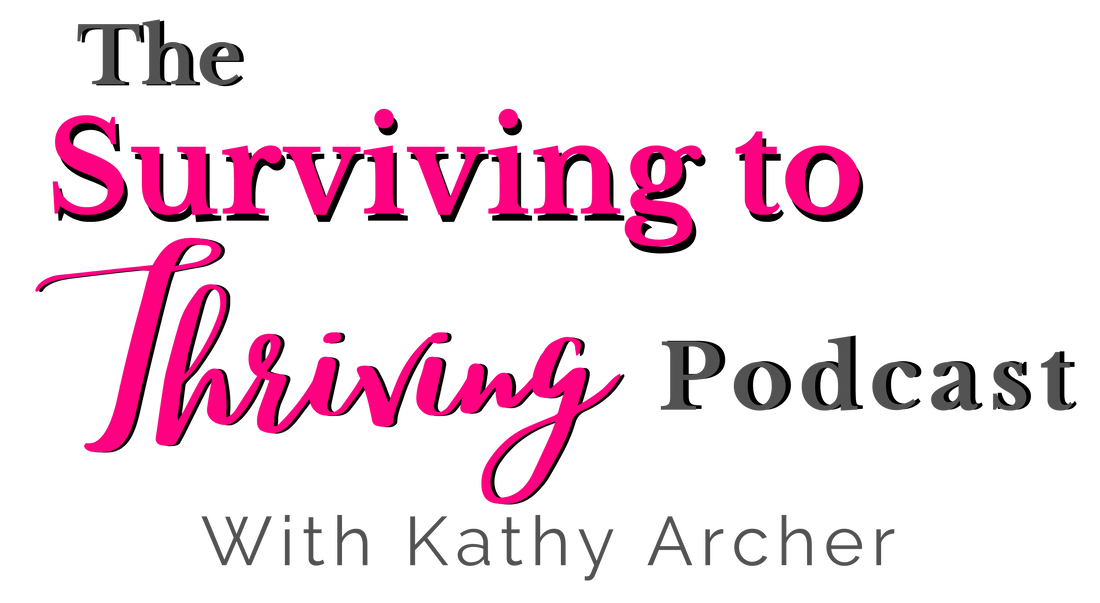
 RSS Feed
RSS Feed
